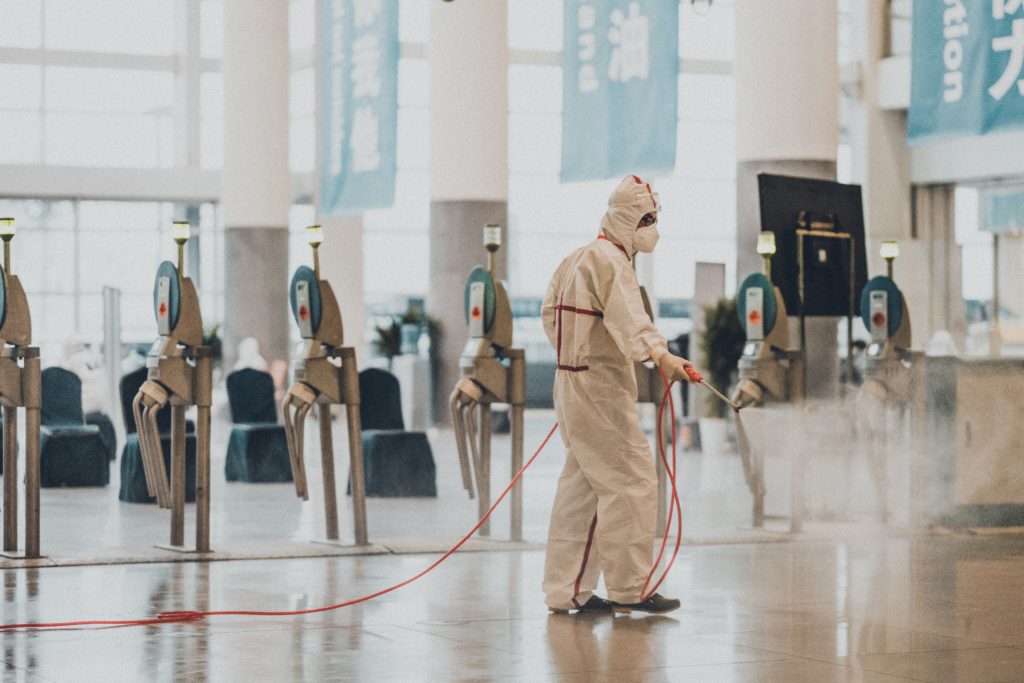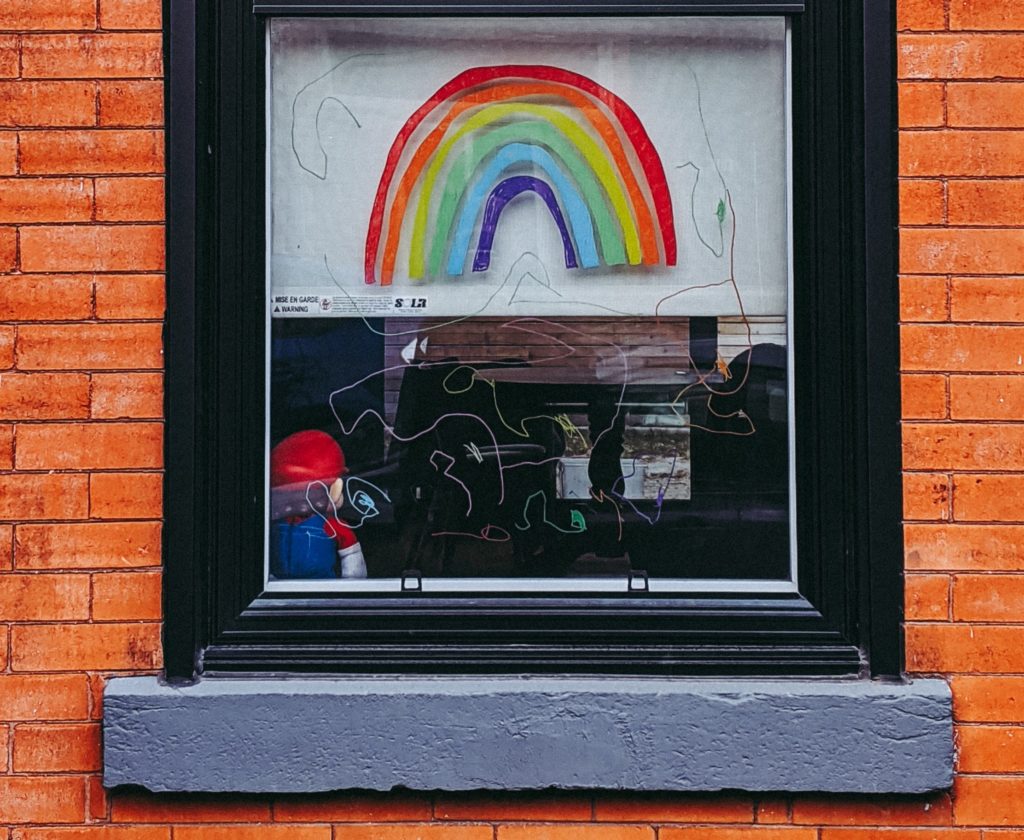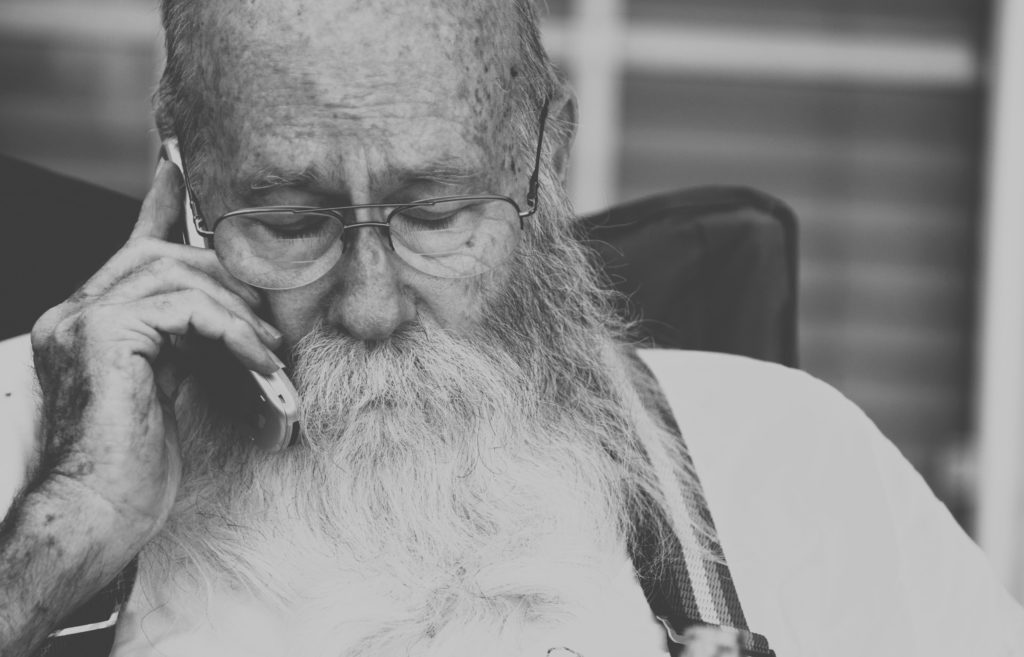
Finding meaning in COVID 19
We should not only seek the “end in time” of this epidemic but ask ourselves what is “the goal to reach”, argues Martin Duran Lopez.
Metaphors don’t tend to survive well in a crisis, and the current Coronavirus crisis is no exception. Plague as punishment, or lockdown as leisure have been tried by some writers, and immediately exposed for their inadequacy.
One metaphor which does just about survive serious examination is that of combat, of battle, of war …
Parallels surely exist, and it has been suggested that the current emergency is a greater psychological challenge than World War II, for example, since in the 1939-45 conflict the “enemy” was easily identified, contained, visible and beatable. If the enemy was to be defeated, at least we could do something. On the other hand, today no bombs are dropping, lights can still shine at night, and at least in the comfortable West, food is still abundant, even if supermarket queues are slightly longer.

In at least one way, however, COVID 19 could be seen as a more psychologically challenging adversary. One man who understood the importance of psychology in times of trial was Victor Frankl. In his Man’s Search for Meaning, Frankl describes the psychological state of concentration camps inmates. Needless to say, I am not equating concentration camps with quarantine but Frankl’s parallels are worthy of consideration.
The first parallel is that there is uncertainty about the duration of the current situation. Frankl writes that former prisoners who talk about their concentration camp experience agree that the most depressing influence of all was that a prisoner could not know how long his term of imprisonment would be. In the same manner, we do not know how long we are supposed to stay home. Governments have consistently postponed the lockdown end date. The most optimistic predictions say that life will get back to normal in a few weeks. The most pessimistic estimates maintain it will be around a year, when a vaccine is successfully developed. In any case, we don’t know the duration of our current situation and we tend to look into the past or to the post-COVID 19 future for solace.
Frankl argued that we are tempted to do so because it makes “the horrors of the present less real”. However, he believes this is a dangerous strategy because it makes it easier to overlook the opportunities to make something positive out of the current situation. Instead of dreaming how our life will be normal again once this is over, we should think, says Frankl, about what opportunities are presented to us right now.
In the UK, Boris Johnson called for 250,000 volunteers to assist the 1.5 million “most vulnerable” people with non-medical tasks like driving to and from hospitals and picking up groceries and medication. The target was met in 24 hours and now it has been raised to 750,000 volunteers, of which 700,000 had already signed up at the time of writing this.

New York Governor Andrew Cuomo urged health professionals across the USA to help the hardest-hit state.He claimed that the medical professionals in New York State needed relief. The answer was almost immediate, almost 100,000 people have volunteered for the state’s reserve force of medical workers.
While we cannot all flock to the front line, like these people, we can surely find opportunities for service in our day to day lives according to our skills and capabilities.
We all come across people who have to keep working outside in spite of the situation. We can try to show our appreciation for the trash collector, the cashier at a supermarket, or the Uber driver that we come across every week. And something as simple as a phone call to a friend or a family member can make all the difference.

Frankl reminds us that even in the concentration camps there were prisoners who walked through the huts comforting others, giving away their last piece of bread. These people were proof that
“everything can be taken away from a man but one thing: the last of the human freedoms – to choose one’s attitude in any given set of circumstances, to choose one’s own way.”
These are hard times, but we are still owners of the attitude with which we face them.
In Frankl’s book there is a brief analysis of the Latin word “finis” which means both “the end” or the “finish” and a “goal to reach”. We should not only ask ourselves what is the “end in time” of this situation, but also what is the “goal to reach”.
“One could make a victory of those experiences, turning life into an inner triumph, or one could ignore the challenges and simply vegetate”, said Frankl.
Crises don’t lend themselves to good metaphors. But they do offer the chance to make good life choices. Therein lies the real battle …
Like what you’ve read? Consider supporting the work of Adamah by making a donation and help us keep exploring life’s big (and not so big) issues!


4 Comments
Paulina Ribadeneira de Martinez
Great article and a nice reflection. This is certainly writing by a great human being.
Mònica Teran
I have enjoyed reading Martin. He sure has a young, wise and generous conscience of life and a positive vision of what the world is facing these days. Martin kindly suggests to learn abut this pandemia and have a better attitude instead of worrying about the future, hoping to return to our previous “normal” life. As Martin mentions this silent war will hopefully help us to be more present , generous, kind and responsible with ourselves, with others and with all that we have in this wonderful planet.
Paulina López Pazmiño
Es muy gratificante leer este artículo en palabras de Martín. Encuentro a un maravilloso ser humano que nos cuenta una historia en paralelo.
Interesante, crítico y ameno, dejándonos un sabor a más.
Avelina Pérez
Totally agree with Martin Durán and his point of view. One freedom nobody can take away from us.